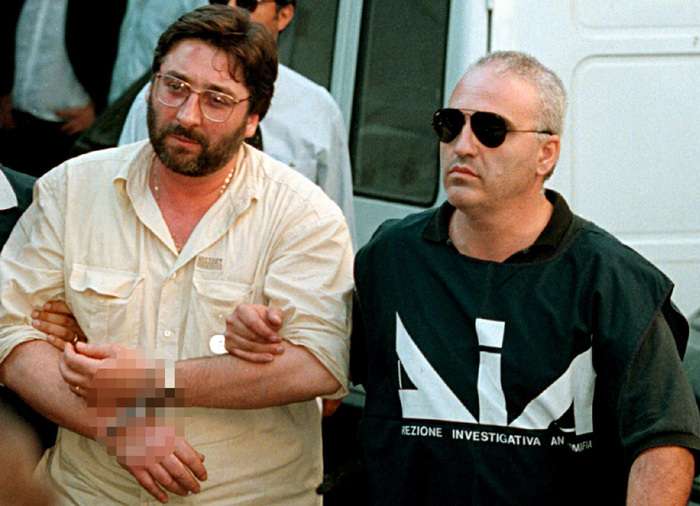SPIEGEL: Ms. O'Mara, how can you imagine Silicon Valley before the tech boom?
Margaret O'Mara: It was an agricultural region like many others in California, with fruit trees, apricots, plums. There was little - except Stanford University. Stanford was good, but not the Harvard of the West. It did not come close to elite universities like Oxford and Cambridge.
SPIEGEL: How did the upswing come about?
O'Mara: The turning point was World War II and then the Cold War, when the US government made significant contributions to research and development. Other regions have benefited from military spending, but in Northern California there was a cluster of companies focused on microelectronics and communications equipment, such as radar or microwave technology. These were the building blocks of the computer revolution.
SPIEGEL: In other countries too, military spending has led to an upswing - but not to a second valley.
O'Mara: The last thing President Eisenhower wanted was a huge, centralized research apparatus like the Soviets. Instead, all of the money was distributed decentrally to defense service providers, companies and universities. Stanford reinvented itself, Berkeley grew into a large research center.
SPIEGEL: So the formula for success consists to a large extent of a government cash injection - and freedom?
O'Mara: The government invested flexibly, especially in the field of microelectronics. For the government was also dependent on its Apollo space program - to send the first people to the moon in front of the Soviets. You need research and places where people can develop something new, with scope, far from the pressure of the market.
SPIEGEL: What made the first pioneer companies in the area?
O'Mara: They were not traditional big armor companies, but they were the only ones who could deliver the product in demand. They considered themselves startups. Co-founders of Fairchild Semiconductor, a legendary semiconductor maker, later co-founded Intel and venture capital firm Kleiner Perkins, one of Silicon Valley's top venture capitalists. The money and expertise of this generation of entrepreneurs has later driven the entire PC generation.
SPIEGEL: What role did the first company founders play?
O'Mara: At first glance, it looks like a Mafia clan - it's a very close group of men who have known each other for ages. Some of the early founders, now 80 or 90, still meet today - they became colleagues and friends decades ago. Also, that Silicon Valley was so isolated has contributed to its success. It's a tech world of its own - and the next generation of young men benefit from the close network.
SPIEGEL: Is not this Boys Club mentality also a weakness?
O'Mara: The merging of work and private life is part of the formula for success, but also one of the biggest weaknesses. The founders believe in their product, they do not look outside - if they want to hire, then someone from their own pool. In the early years of computer movement there were many women, but they quickly felt that they were not part of it and left the guys their toys.
SPIEGEL: Did the Valley lose some of its magic today?
O'Mara: The Silicon Valley obituary has been written prematurely, like in 1969, when there were cuts in the military budget, or in the dot-com bubble in 2002. But there was always a comeback. On the other hand, nobody should rest on his laurels. Detroit was once the most innovative place in the world - 100 years ago.
SPIEGEL: The cost of living alone is a deterrent to many.
O'Mara: They have increased enormously with the boom in the industry. The companies need employees, many have moved. Immigration policy is an important secret of Silicon Valley.
SPIEGEL: What is the impact of the tightening of immigration policy in the Trump administration?
O'Mara: If the US makes it difficult for people to study and work here in the future, it may deter the entrepreneur. The legendary Intel CEO Andy Grove came in 1956 as a 20-year-old refugee from Hungary to the United States and could hardly speak English. Today, border guards would dismiss it as a burden on the state - to the detriment of the US and to the benefit of other countries.
SPIEGEL: Can you say that the digital power relations are shifting?
O'Mara: The Valley itself is still a big deal. But there are other power centers as well. Those who wanted to get into this industry 25 years ago had to come to the US. Now you can stay in India, China, Portugal, Germany or anywhere.
SPIEGEL: Does China have the potential to build a new Silicon Valley?
O'Mara: There is a lot of entrepreneurship, but the government is very close to the companies. Also, the US is a capitalist democracy, has contributed to the growth of Silicon Valley, with great scope for developers and more porous borders for the flow of capital, people, ideas. In China, the system will not work the same way.
SPIEGEL: Nevertheless, the Valley is working off the Chinese competition.
O'Mara: China is now investing in cutting-edge technology, universities and infrastructure - something that America does not do to the same extent as it used to. This should be a warning given challenges such as artificial intelligence, quantum computing or climate change. There are areas where the government should play a strong role, because the economy will not be alone.
SPIEGEL: At the same time, the big tech companies, especially in California, are heavily involved in politics. They finance buses, build housing estates, Facebook even maintains a police station.
O'Mara: They dominate more and more. Many Americans believe Amazon or the Gates Foundation should pay, they have enough money. But individuals invest according to their own priorities. In California, trains are too late, public schools have too little resources - so the tech companies are building a parallel world for their employees. They run their own bus lines, and the schools are supported by private fundraising. Instead of trying to change politics, Silicon Valley technologists often dismiss the political system as irrelevant to their business.
SPIEGEL: Where does this rejection come from?
O'Mara: The attitude is rooted in the Vietnam and Watergate era, when young people felt that leadership had failed and that bureaucracy was useless. In the 1960s, students at Stanford and Berkeley worked on computers funded by the Military Industrial Complex. Instead of engaging in politics, they wanted to build computers that deprive the military, the university, and corporations of power and put them in the hands of users. Politics is chaotic, the world is messy, the computer should be the clean, beautiful solution to all problems.
SPIEGEL: This vision has obviously failed.
O'Mara: Today we laugh about it, but this tech optimism has driven the Valley. I think the companies heard the wake up call, but they react differently depending on the business model. For example, Microsoft and Apple have long been the little, bad, rebellious guys - now they are the adults in the room. Nevertheless, the industry urgently needs guard rails, it has grown completely unregulated.
SPIEGEL: Why is politics reacting so late?
O'Mara: It all happened very fast. Ten years ago, many technologies did not exist yet. Incredible power is focused on individual executives and bankers, there are close alliances with policy makers. There is also a great imbalance of expertise because companies have hired the best technology experts. It goes so far that the government is now asking the tech companies for help: what should we do? How should we regulate you? The US government needs to strengthen again.
SPIEGEL: What is your future forecast for Silicon Valley?
O'Mara: It was a long boom, eventually the downturn could actually come and even be healthy. But even after the dotcom bubble there was still plenty of wealth - and room for newcomers. For Google, the burst bubble was great at that time, it could stop all the experts who were released elsewhere. They could cheaply take over computers and expand the business. There's going to be some company in ten years whose name nobody knows yet, that's as big and well known as Google today.


/cloudfront-eu-central-1.images.arcpublishing.com/prisa/LHD7AFJIJRDATGI2BJ6XL263EY.jpg)






